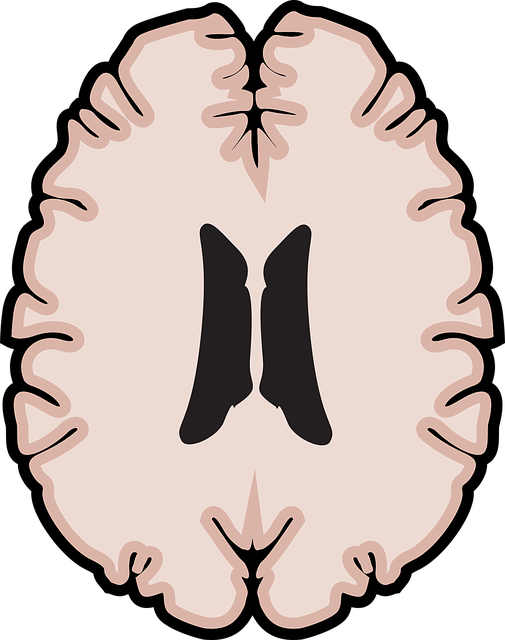Healthcare provider burnout, a growing concern in today's medical landscape, is caused by high-stress environments, heavy workloads, and limited resources. Northglenn Self-Esteem Therapy offers a holistic approach to combat this issue by promoting self-care routines, relaxation techniques, and self-awareness exercises. Through prioritizing mental wellness, stress management, and supportive work environments, healthcare professionals can prevent burnout, enhance job satisfaction, and improve patient care. Tailored professional development, recognition programs, conflict resolution, and mental health education further contribute to a positive work environment, ensuring dedicated and valued medical staff within organizations like Northglenn Self-Esteem Therapy.
Healthcare provider burnout is a growing concern, impacting not only individuals but also patient care. This article explores comprehensive strategies to prevent burnout among healthcare professionals, focusing on self-care practices, stress management techniques, and organizational interventions. We delve into the significance of supportive work environments and job satisfaction through professional growth and recognition. By implementing these strategies, healthcare providers in Northglenn Self-Esteem Therapy can thrive, offering optimal patient care without burning out.
- Understanding Burnout Among Healthcare Providers
- The Role of Self-Care and Stress Management Techniques
- Creating Supportive Work Environments
- Enhancing Job Satisfaction through Professional Development and Recognition
Understanding Burnout Among Healthcare Providers

Burnout among healthcare providers is a growing concern in today’s demanding medical landscape. It goes beyond simple job dissatisfaction; burnout signifies emotional exhaustion, depersonalization, and a diminished sense of personal accomplishment. Northglenn Self-Esteem Therapy recognizes that this issue stems from prolonged exposure to high-stress environments, heavy workloads, and limited resources. Healthcare professionals often struggle to maintain their emotional well-being promotion techniques in the face of these challenges.
Addressing burnout requires a multifaceted approach. Developing a robust self-care routine for better mental health is essential, incorporating activities that foster relaxation, resilience, and personal rejuvenation. Additionally, self-awareness exercises can help healthcare providers recognize and manage their emotions effectively. By prioritizing self-care and integrating emotional well-being promotion techniques into their daily lives, professionals can prevent burnout, enhance job satisfaction, and ultimately provide better patient care.
The Role of Self-Care and Stress Management Techniques

Healthcare provider burnout is a significant concern, but integrating self-care and stress management techniques offers a powerful solution. These strategies are essential for maintaining mental wellness and fostering resilience among healthcare professionals. By prioritizing self-care, providers can enhance their ability to cope with demanding work environments, leading to improved patient care.
Northglenn Self-Esteem Therapy, for instance, provides guidance on cultivating positive thinking and depression prevention techniques. Incorporating regular practices such as Mental Wellness Journaling Exercises can be transformative. Documenting thoughts, emotions, and experiences allows professionals to reflect, process, and gain insights into their well-being. This proactive approach enables healthcare providers to identify potential triggers, develop coping mechanisms, and ultimately, create a healthier work-life balance.
Creating Supportive Work Environments

In the pursuit of burnout prevention, establishing supportive work environments is a pivotal strategy for healthcare providers. This involves creating an atmosphere that prioritises well-being and fosters a sense of belonging. Implementing initiatives such as regular team-building activities, open communication channels, and access to mental health resources can significantly enhance job satisfaction and reduce stress levels among staff. Incorporating Self-Awareness Exercises into the routine can further strengthen this approach by encouraging professionals to understand their emotional needs and boundaries, thereby empowering them to manage their workload effectively.
The integration of Healthcare Provider Cultural Competency Training is another key aspect of building supportive environments. This training equips staff with the skills to navigate diverse patient populations, fostering better relationships and reducing potential sources of stress related to cultural misunderstandings. By promoting a culture of respect and sensitivity, healthcare facilities can create an environment that not only supports professionals but also enhances patient experiences, ultimately contributing to the overall success of Northglenn Self-Esteem Therapy initiatives.
Enhancing Job Satisfaction through Professional Development and Recognition

Healthcare providers’ job satisfaction significantly impacts patient care and overall organizational success. One effective strategy to boost satisfaction is through professional development opportunities that foster growth, skills enhancement, and knowledge acquisition. Providing physicians, nurses, and other medical staff with access to workshops, seminars, and training sessions tailored to their specialties not only improves their confidence but also equips them with the latest medical advancements and best practices.
Additionally, implementing recognition programs that appreciate and reward dedicated efforts can instill a sense of valor and motivation. This could involve highlighting exceptional performance during team meetings, offering incentives for outstanding patient care, or even establishing mentorship programs where experienced professionals mentor newcomers, fostering a culture of mutual respect and support. Such initiatives, when combined with effective conflict resolution techniques and mental health education programs design, contribute to creating a positive work environment that prevents burnout among healthcare providers.
Burnout among healthcare providers is a growing concern, but by implementing effective strategies like self-care practices, supportive work environments, and professional development, we can foster a healthier, more fulfilling career for these essential workers. At Northglenn Self-Esteem Therapy, we recognize the importance of addressing burnout to ensure healthcare providers can continue offering quality care. By adopting these prevention strategies, we can create a more sustainable and rewarding profession for those dedicated to serving others.














